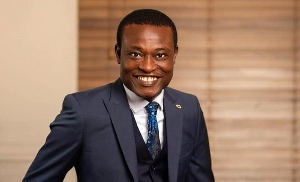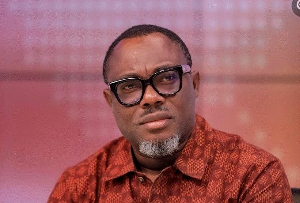It took almost ten years for Ghana to come to terms with some revelations made by the then Chief Justice, George Kingsley Acquah, about some staff in the Judiciary Service being corrupt.
"Some demand money before carrying out functions for litigants but this should not be the case," Justice George Kingsley Acquah noted during an interaction with court reporters in 2005.
In 2015, Ghana’s Investigative journalist, Anas Aremeyaw Anas’s exposé captured Judges and court officials on video, taking bribes to influence justice.
The exposé which was termed as the “biggest scandal ever to hit Ghana’s judicial service” led to the suspension of seven of 12 High Court judges implicated in the documentary.
Read the full story originally published on Febraury 12, 2005, on Ghanaweb
Mr Justice George Kingsley Acquah, Chief Justice on Friday said corruption was endemic among staff of the Judicial Service and warned that disciplinary action would be taken against offenders.
"First, I thought it was the judges that were corrupt but in large cases it is rather the staff that engage in corrupt practices," Mr Justice Acquah said in an interaction with court reporters in Accra. He mentioned some of the corrupt practices as stealing and hiding of dockets by some staff and collecting money from litigants under the pretext of influencing judges.
"Some demand money before carrying out functions for litigants but this should not be the case." The Chief Justice noted that some staff also reported to work very late but left early saying these behaviours did not augur well for the administration of justice in the country. According the Chief these bad attitudes were also prevalent in the regions and announced that he would embark on unannounced visits to the regions very soon to see things for myself.
Mr Justice Acquah recalled an instance where a docket was said to be missing for six months creating problems for the trial judge to deliver judgement. "Immediately I was informed about it I asked them to look for it and within hours they produced the docket." He asked the public not hesitate to report such behaviour of staff to the Judicial Service saying, "now the Complaint Unit has been put on line and people do not need to travel to Accra to lodge complaints".
Mr Justice Acquah said the service was trying to come out with a Code of Conduct for Judges adding, "The Judicial Service would continue to pursue judges that are corrupt." The Chief Justice said he would make corruption unprofitable for judges so that judges who engaged in such practises would resign. He urged all to be guided by honesty and transparency in their dealings to enhance the image of the service.
Mr Justice Acquah said the Judicial Service in 2004, produced an annual report on the performances of the country's courts "to enable us to know the performances of the courts, enhance research and inform sociologists on how to take measures to curb various crimes in a particular area". On salaries of judges, the Chief Justice said the government had set up a committee to take up the issue and expressed the hope that "something good will come out of that."
He said the Judicial Service did not have enough judges, citing Greater Accra as having only 31 High Court Judges. Mr Justice Acquah announced that the Service would on March 4 commission its six automated Commercial Courts Unit that would deal with intellectual property, banking and piracy, among others.
On the performance of the Fast Track Courts, he noted that they had performed creditably, saying out 482 cases brought before them 298 had been disposed of. The Chief Justice said efforts were being made to get funds to put a modern court complex to house the Cocoa Affairs Courts. "The Judicial Service needs a lot of financial input in order to achieve its vision," he added.
General News of Wednesday, 12 February 2020
Source: www.ghanaweb.com

















